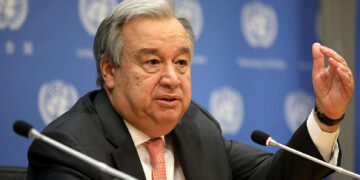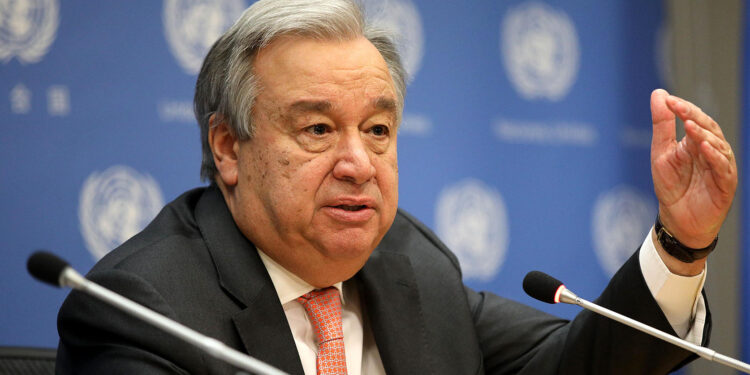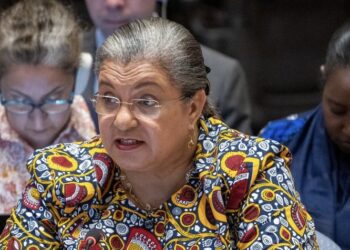By Lucy Adautin
United Nations Secretary-General Antonio Guterres warned on Thursday that African nations’ limited access to debt relief and scarce resources pose a serious risk of social unrest.
He proposed new reforms to the global financial structure to address these challenges.
A mounting debt crisis across the continent, home to one billion people, has fueled civil unrest in recent months. Protests in Kenya, where demonstrators clashed with police over proposed tax increases, sparked similar movements in Nigeria and Uganda, driven by the rising cost of living.
African countries have sought to restructure their debts through the G20’s ‘Common Framework,’ but the program has failed to speed up negotiations between diverse stakeholders, including Chinese state-owned banks, London-based asset managers, and New York banks.
Zambia in June became the first country to successfully restructure its debt through the scheme, more than three years after it defaulted on its loans.
Guterres told a major China-Africa cooperation summit in Beijing that Africa’s debt “situation is unsustainable and a recipe for social unrest”.
“They have no access to effective debt relief, scarce resources, and clearly insufficient concessional funding to respond to the basic needs of their population,” he said.
Guterres proposed “deep reforms to the outdated, ineffective and unfair international financial architecture” and further stimulus “to provide developing countries with the liquidity they need while seeking medium- and long-term solutions.”
Beijing, the largest bilateral lender globally, is hosting 50 African nations this week for the ninth Forum on China-Africa Cooperation Summit. During the event, Chinese President Xi Jinping committed 360 billion yuan ($50.70 billion) in new financing to Africa over the next three years.
China’s loans to Africa totaled $4.61 billion last year, marking the first annual increase since 2016.
Guterres commended China’s efforts in Africa, highlighting their potential to lead a “renewable energy revolution” and act as a “catalyst for key transitions in food systems and digital connectivity.”
Angola’s finance minister Vera Davis revealed recently that Luanda is considering proposals from Beijing, Brussels, and other partners to secure funds quickly, aiming to reduce inflation and expand public-private partnerships. ($1 = 7.1005 Chinese yuan renminbi)


































